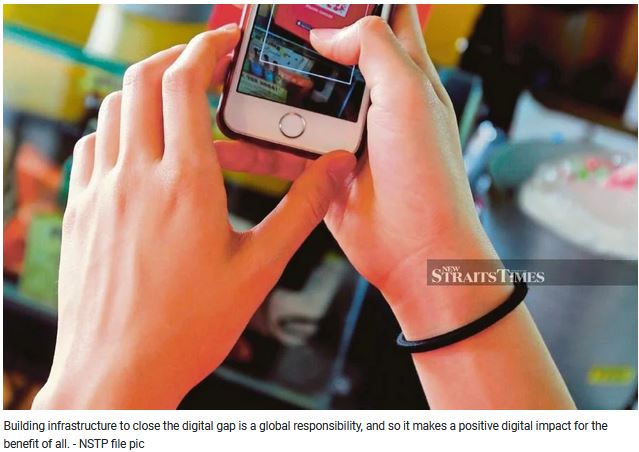Educational leadership in realising the digital economy
Emeritus Professor Tan Sri Dato' Dzulkifli Abdul Razak
Opinion - New Straits Times
November 20, 2020
THE National Digital Economy and Fourth Industrial Revolution (4IR) Council met for the first time last week.
It is indeed a historic moment where the country is involved in making a transition into the digital world. Digital transformation is one of the key strategic priorities in shaping the future.
As a member of the Council coming from academia, digital transformation in Higher Education (HE) must be an imperative to realise the transformation in the best manner possible.
This means we need to carefully reflect on how it will impact the future of the nation through education. This also means HE should be able to distil the values and principles that can build a comprehensive framework that connects the various sectors together with that of economics digitally.
In other words, economics must be balanced sustainably with the needs of the planet, as well as that of its inhabitants.
This must be the overarching goal because all previous industrial revolutions since some 300 years have caused much chaos to the environment(planet) and humanity (people) creating a number of divides and imbalances socio-economically speaking.
This is very much evident until today arriving at a very worrying tipping point that could threaten the entire planet before the century is out.
In other words, will the 4IR impact the world in the same way given that it is part of the continuum of the so-called "revolution" conceived in the 1700s with a number of unexpected blind spots?
What will be the next blind spots that the digital world will bring in the years to come? For example, do we understand enough about the phenomenon of "singularity" that can be a "real" source revolution brought about by 4IR.
Otherwise, this can be yet another blind spot that has a potential of being more devastating than any of the "disruptions" that we have observed thus far. This is because it will engulf the biological aspects together with the technical ones, and not just the latter as is often the case.
That is, it is more pervasive intrinsically speaking and not merely extrinsic in nature. This will eventually reshape and redefine humanity itself.
Thus far, there is no in-depth analysis on this dimension that the council is privy to. Here is where that academia must come into play by providing leadership, to clarify where we are really heading to as a community that is truly aware of the future, digital or otherwise.
The challenges ahead differ around the world where the context, namely values, norms, heritage, are paramount in avoiding a "one-size-fits-all" approach that we have been used to.
The reality is that new (unknown) technologies do carry the potential to contribute to societal development and to improve the human condition.
Yet they also have generated serious questions about ethics, equality, justice and regulations (addiction is one pressing issue) that has been heightened by the pandemic in no uncertain terms.
Moreover, conditions for digital transformation vary between and within countries, Malaysia is no exception.
There are still places where the second IR is still wanting given that electricity is virtually absent or in short supply to support quality life. Building infrastructure to close the digital gap is a global responsibility, and so it makes a positive digital impact for the benefit of all.
This calls for the HE sector to assert its role as framed in Sustainable Development Goal 4 on education:
Ensure inclusive and equitable quality education and promote lifelong learning opportunities for all.
Specifically, it is directed to addressing "affordable and quality technical, vocational and tertiary education, including university" by 2030.
It is incumbent therefore for HE leadership to foster an institutional culture that harnesses the transformative power of technology, incite appropriate and effective use in teaching, learning and research while narrowing the gaps between the various vulnerable groups.
This can be achieved by enhancing the potential to increase equitable access for those concerned by prioritising the issue at the leadership level under the purview of the council towards universal access with success.
Only then can digital transformation and 4IR foster inclusivity, justice and equity for all.
The writer is NST columnist for more than 20 years, and a member of the National Digital Economy and 4IR Council

